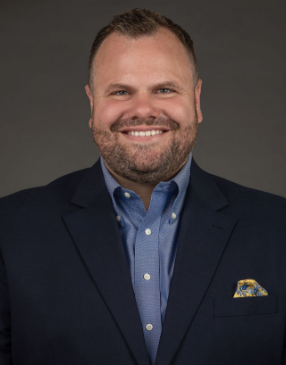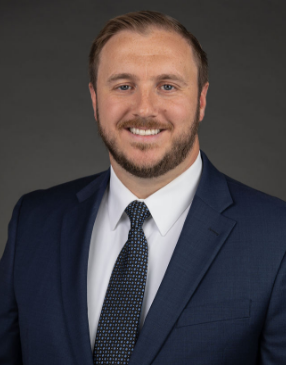When seeking to appoint a Power of Attorney, it is essential to understand the scope of authority you’re granting, as POAs can be highly specific or general in their authority. From financial decisions to health care choices, a POA can be tailored to fit your specific needs and timeline, including when you’d like the authority to begin and how to revoke it if needed. This page provides an overview of different POA types to help you consider your options and make informed decisions
A Durable Power of Attorney is a legal document that grants someone, known as the “attorney-in-fact” or “agent,” the authority to make financial and legal decisions on behalf of the person creating the documents, who is the “principal.”
Unlike a general power of attorney, a durable power of attorney remains effective even if the principal becomes incapacitated. The document entails specific powers and responsibilities to the agent. The principal can make the document broad, which would grant the agent authority over various financial matters, or it can be limited to specific actions or time frames. This gives the principal the power to decide how much or how little control they want to allow the agent.
The Durable POA becomes especially useful in situations where the principal is unable to manage financial affairs or make legal decisions due to incapacity or other reasons. The document is often used for pragmatic reasons, ensuring the seamless management of financial matters in the event of the principal’s inability to act. This document is also useful in that the principal is able to avoid conservatorship. By appointing an agent ahead of time, individuals are able to avoid the need for court-appointed conservatorships, providing greater control over who manages their affairs during incapacity.
An Appointment of Health Care Representative is a legal document that grants someone, known as the “health care representative” or “health care power of attorney” the authority to make health care and medical treatment decisions on behalf of the person creating the document.
This is crucial aspect of your comprehensive estate plan, and is often a preferred alternative to a Living Will. In a time of medical emergency, doctors will provide you with necessary medical treatment. However, at later stages, decisions about memory care, long term recovery and life-sustaining treatments may arise. Protect your family from difficult decisions and potential disagreements by communicating your wishes in advance to your designated HCPOA.
This appointment is less restrictive and controlling than a Conservatorship and can help prevent the need for the appointment of a Conservator later in life. Your HCPOA can only make medical treatment decisions when you are unable to. A Conservator of the Person is always in charge of medical decisions of the conserved. In essence, the HCPOA ensures that your healthcare preferences and treatment choices are honored when you are unable to communicate them yourself.
This position of HCPOA should be assigned to someone that truly knows you, your beliefs and your life wishes. The person with this authority may be asked by medical professionals to make life altering decisions regarding your care and treatment when you are unable to. This directive should be provided to your primary care physician, other specialists as needed, and the appointee to use if the medical need arises. For this reason, we provide our Estate Planning clients with multiple originals of this directive to provide to their medical providers as well as one for the appointee.
A Financial Power of Attorney is a legal document that grants someone, known as the “attorney-in-fact” or “agent,” the authority to make financial decisions on behalf of the person creating the document, referred to as the “principal.” This is similar to a Durable POA, but the agent in this case only has authority to make financial decisions, not legal decisions.
A Financial POA entails specific powers and responsibilities that the principal grants to the agent. The documents can be tailored to provide a broad range of financial decision-making authority or limited to specific actions, depending on the preferences of the principal. This allows the principal to decide how much authority they want to assign to the designated agent.
The purpose of a Financial POA is to designate someone to act on behalf of the principal’s financial matters, especially if the principal becomes unable to manage their affairs due to incapacity or other reasons. This document allows an individual to plan for the possibility of future incapacity by appointing a trusted agent to manage their financial affairs. This document is also useful in that the principal is able to avoid conservatorship. By appointing an agent ahead of time, individuals are able to avoid the need for court-appointed conservatorships, providing greater control over who manages their affairs during incapacity.
These documents are utilized to provide clarity and legal authorization in the event you, or the principal, become incapacitated and cannot communicate or executor your decisions. It is important to discuss with the appointed individual what your wishes and preferences are, as well as make them aware of what responsibilities they have as someone with this authority on your behalf.
Power of Attorney documents can be an important part of your estate planning or can be drafted on their own without a will or trust document. Additionally, these documents can be drafted and executed but held by your attorney until a time of need. Our Estate Planning team can help you decide which documents are most valuable to execute your wishes and create a package tailored to your needs.

Partner

Partner

Office Manager

Paralegal

Paralegal
The length of time required to see your case through to completion varies by case. During your initial consultation, we will review the expected time lines and potential recovery uniquely associated with your matter.
Usually, there is a statute of limitations on bringing a claim. This means you have a limited amount of time to notify the other party of your claim for damages and filing with the appropriate courts. For most wrongful death and catastrophic injury claims, you have less than two years from the date of loss to file a lawsuit in Connecticut. It is therefore advisable to speak with an attorney as soon as you become aware of a potential issue, from there we can help you formulate a plan of action.

Linda is the seasoned probate paralegal working together with clients helping them through probate administration following the loss of a loved one. Joining the team in 2023, she has brought 25+ years of legal experience to the firm with extensive proficiency in all administrative tasks, Probate Court knowledge, complex document preparation, and case management. Linda works exceedingly well the court’s staff and cultivates close relationships with new and existing clientele.
Linda is a long-time resident of the area and loves going for walks on the beach before work. She enjoys spending time with her husband, Ken, and their three grown children. She enjoys road trips, is an avid reader, collector of sea glass and is an amateur artist.

Ashley is the paralegal working directly with our attorneys and our clients. The attorneys at Doyon & White are grateful that our clients feel comfortable reaching out to Ashley for status updates or quick questions when the attorneys are unavailable. Ashley has a background in customer service with 10 years in the hotel industry and enjoys the client relation aspect of her job the most. Ashley is intimately familiar with the details of our client’s cases, processes and reviews all medical records, and communicates with attorneys and insurance adjusters.
Ashley moved to Branford, Conn from Northern California in 2018 and hasn’t looked back since. She enjoys the four seasons New England offers by playing golf and tennis in the summer and looks forward to snow days and skiing in the winter.

Attorney Doyon was born and raised in the hills of Northwest Connecticut. Trevor began his legal career serving as the clerk for several Superior Court Judges, many of whom are now members of the Connecticut Supreme and Appellate Courts.
Before forming Doyon & White Law Group, Trevor was the Managing Partner of a successful mid-size law-firm’s Litigation Department. Trevor has favorably authored and argued hundreds of motions and hearings in every Judicial District of Connecticut, in addition to winning numerous contested arbitrations and jury trial verdicts. Attorney Doyon is known and respected for his determined approach to unique and difficult legal issues by clients and judges alike.
Trevor has been honored as a Super Lawyer’s Rising Star for 2017, 2018, 2019, 2020, 2021 and 2022, a selection made by colleagues and peers and reserved for less than five percent of lawyers in Connecticut. Attorney Doyon has also been nominated to the “National Trial Lawyer’s Top 100” list, was recognized by the American Institute for Lawyers as “Top 10 for Client Satisfaction,” and has been a featured guest speaker at Yale University’s Trial Law Camp.
When he’s not in Court, Trevor enjoys spending time with his wife Becky, their two daughters and their Great Dane “Gronk,” in addition to supporting anything UConn sports and coaching Connecticut’s only national level Sled Hockey team.

Attorney White was born and raised in New Haven, Connecticut. After graduation from Fordham University, he worked in commercial finance in New York City before attending Quinnipiac University School of Law. Upon graduation he served as a clerk in the Superior Court in both the criminal and civil divisions.
Prior to forming Doyon & White Law Group, Attorney White practiced at a mid-size firm in Hamden, Connecticut where he mainly handled criminal defense, habeas cases, and civil litigation matters. Attorney White’s experience arguing before jury trials and court trials has led to winning favorable results for his clients on many occasions. Attorney White’s civil litigation experience includes personal injury representation, business litigation, and insurance coverage disputes.
Attorney White is a thoughtful and diligent advocate for all his clients and is respected for the rapport he builds and compassion he conveys.
Attorney White is a member of the New Haven County Bar Association and previously served as the President of the New Haven Young Lawyers Association.
Still a proud New Haven resident, Attorney White enjoys spending time in the city with his wife Sara, their two young children, and their pit bull, Ghost. He’s an avid UConn basketball fan and New York Yankees fan.